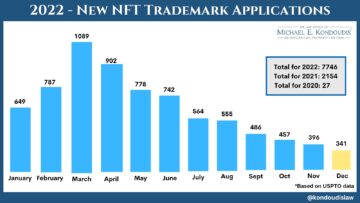
OpenAI’s creation ChatGPT has drafted a law to regulate AI in Costa Rica after lawmakers in that country turned to the chatbot as the need to regulate the AI industry intensifies.
This comes as world leaders are seized with discussions around AI regulation amid fast growth of generative AI, which was inspired by the launch of ChatGPT last November.
Think like a lawyer
Lawmakers in Costa Rica asked ChatGPT to “think like a lawyer” and come up with a draft law that may be adopted to regulate the sector, in line with the country’s constitution.
According to a Reuters report, the chatbot came up with several recommendations such as creating an institution to regulate the AI industry. This according to the recommendations should be steered on human rights protection, prevention of bias and accountability principles.
The lawmakers presented the draft made by ChatGPT in its raw format for review.
“We have had many positive reactions and many people who thought it to be very risky,” Congresswoman Vanessa Castro, who led the introduction of the bill, told Thomson Reuters Foundation.
“We learned that artificial intelligence is just another legislative tool that still needs the human hand,” added Castro.
Also read: Former BitMEX CEO Predicts Bitcoin to Revolutionize Artificial Intelligence
AI regulation in Latin America
Across the Latin American region, lawmakers are working on updating their existing laws on technology or trying to come up with new legal frameworks to govern the ballooning generative AI.
They are following in the footsteps of the EU, whose AI Act entails rules banning the “use of the technology in biometric surveillance and for it to be clear what content is AI-generated.”
In May, senate president for Brazil Rogrigo Pacheco presented a bill, which was a result of recommendations from the legal fraternity in a 2022 working group. The bill is anchored on governance, risk classification, principles as well as oversight and accountability.
Last month, Colombia ICT minister Mauricio Lizcano announced the creation of an AI laboratory aimed at prototyping technologies and their regulations.
“The great challenge we have is protection, privacy and data analysis, the black box to identify and control the algorithm. Another challenge is to ensure that AI is diverse, equitable and can be within everyone’s reach,” Lizcano was quoted as saying.
Mexico also introduced a bill in March for AI regulation, with emphasis on protection of human rights and personal data, while the Peruvian Congress also approved the region’s first law in June to govern the industry.
According to Economic Times, Costa Rica becomes the eighth country in Latin America to deliberate on a law that governs the AI industry, bearing in mind the principles of cybersecurity.
However, Congresswoman Johana Obando was not very excited about the bill although she was in support of regulating AI.
Her line of argument is that the chatbot “simply made up statistics and articles from the Costa Rican Constitution.” Additionally, the bill was according to her a “list of wishes”.
“ChatGPT said we should regulate based on fundamentals rights and international conventions,” said Odando.
“But what are those rights and conventions? The bill does not mention that.”
AI by and for Latin Americans
Amid growth in generative AI, the Latin American region is also pushing for AI regulations that support local innovations and create an enabling environment for healthy competition with big companies like Microsoft and Google.
As such the region wants innovations made by and for Latin Americans.
“We are currently colonized by products of a few American Multinationals.” said Francisco Garijo, president of the Ibero-American Society of Artificial Intelligence, a grouping of experts from the region.
“The best way to deal with this colonialism is to promote the development of local products that can compete with them,” he said.
While the region is seized with AI regulation, discussions in Brazil have been intense in the past few years where there are three bills pending in its congress.
Initially, one of the legal framework received approval in 2021 but later blocked by senate for it lacked enforcement mechanisms among other concerns.
Tarzício Silva, a researcher on algorithmic bias and fellow at the Mozilla Foundation, also an anti-racism advocate was however concerned the debates excluded minority views.
“This commission was comprised of 18 jurists, 80 experts, and not a single one of them were part of the racial minorities in Brazil,” said Silva.
“They didn’t consider black and indigenous people.”
- SEO Powered Content & PR Distribution. Get Amplified Today.
- PlatoData.Network Vertical Generative Ai. Empower Yourself. Access Here.
- PlatoAiStream. Web3 Intelligence. Knowledge Amplified. Access Here.
- PlatoESG. Automotive / EVs, Carbon, CleanTech, Energy, Environment, Solar, Waste Management. Access Here.
- BlockOffsets. Modernizing Environmental Offset Ownership. Access Here.
- Source: https://metanews.com/lightning-labs-enables-bitcoin-payments-for-ai-like-chatgpt/
- :has
- :is
- :not
- :where
- $UP
- 10
- 2021
- 2022
- 7
- 80
- 9
- a
- About
- According
- accountability
- Act
- added
- Additionally
- adopted
- advocate
- After
- AI
- AI Act
- aimed
- algorithm
- algorithmic
- also
- Although
- america
- American
- Americans
- Amid
- among
- an
- analysis
- and
- announced
- Another
- approval
- approved
- ARE
- argument
- around
- articles
- artificial
- artificial intelligence
- AS
- At
- based
- BE
- becomes
- been
- BEST
- bias
- Big
- Bill
- Bills
- biometric
- Bitcoin
- Bitcoin Payments
- BitMEX
- BitMEX CEO
- Black
- blocked
- Box
- Brazil
- but
- by
- came
- CAN
- ceo
- challenge
- chatbot
- ChatGPT
- classification
- clear
- Cms
- Colombia
- come
- comes
- commission
- Companies
- compete
- competition
- Comprised
- concerned
- Concerns
- Congress
- Congresswoman
- Consider
- Constitution
- content
- control
- COSTA RICA
- country
- country’s
- create
- Creating
- creation
- Currently
- Cybersecurity
- data
- data analysis
- deal
- debates
- Development
- discussions
- diverse
- does
- draft
- draft law
- drafted
- Eighth
- emphasis
- enables
- enabling
- enforcement
- ensure
- Environment
- equitable
- everyone’s
- excited
- excluded
- existing
- experts
- FAST
- fellow
- few
- First
- following
- For
- format
- Foundation
- Framework
- frameworks
- Francisco
- from
- Fundamentals
- generative
- Generative AI
- governance
- governs
- great
- Group
- Growth
- had
- hand
- Have
- he
- healthy
- her
- However
- HTTPS
- human
- human rights
- ICT
- identify
- in
- industry
- innovations
- inspired
- Institution
- Intelligence
- Intensifies
- International
- introduced
- Introduction
- IT
- ITS
- jpg
- june
- just
- laboratory
- Labs
- Last
- later
- Latin
- latin america
- Latin American
- launch
- Law
- lawmakers
- Laws
- leaders
- learned
- Led
- Legal
- legal framework
- Legislative
- lightning
- lightning labs
- like
- Line
- local
- made
- many
- many people
- March
- May..
- mechanisms
- mind
- minorities
- minority
- Month
- Mozilla
- Need
- needs
- New
- November
- of
- on
- ONE
- or
- Other
- Oversight
- part
- past
- payments
- pending
- People
- personal
- personal data
- plato
- Plato Data Intelligence
- PlatoData
- positive
- Predicts
- presented
- president
- Prevention
- principles
- privacy
- Products
- promote
- protection
- prototyping
- Pushing
- Raw
- reach
- reactions
- Read
- received
- recommendations
- region
- Regulate
- regulating
- Regulation
- regulations
- researcher
- result
- Reuters
- review
- revolutionize
- rights
- Risk
- Risky
- rules
- Said
- saying
- sector
- seized
- Senate
- several
- she
- should
- silva
- single
- Society
- statistics
- Still
- such
- support
- surveillance
- Technologies
- Technology
- that
- The
- their
- Them
- There.
- this
- Thomson Reuters
- those
- thought
- three
- to
- tool
- Turned
- updating
- very
- views
- wants
- was
- Way..
- we
- WELL
- were
- What
- which
- while
- WHO
- whose
- with
- within
- working
- Working Group
- world
- years
- zephyrnet













